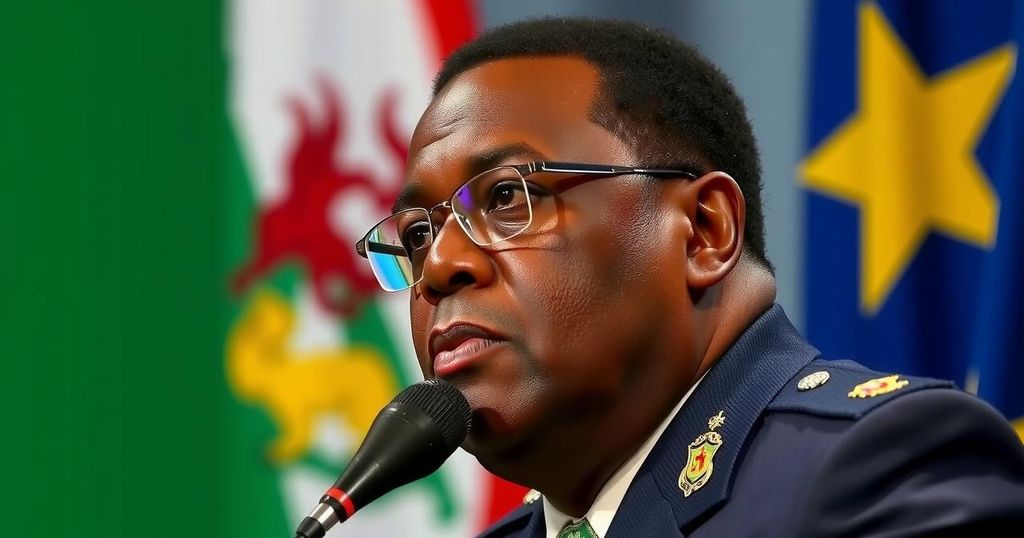On November 8, 2023, Baltasar Ebang Engonga was dismissed as Director General of ANIF in Equatorial Guinea following explicit videos of him surfacing online. The incident prompted strong responses from authorities, including Vice President Teodoro Mangue, who promised stringent measures against misconduct. Engonga’s case highlights ongoing challenges with corruption and ethical behavior in government institutions.
On November 8th, authorities in Equatorial Guinea officially dismissed Baltasar Ebang Engonga from his position as Director General of the National Financial Investigation Agency (ANIF) following the circulation of explicit videos featuring him engaging in sexual activities with multiple women. The government had previously suspended Engonga after a video surfaced, allegedly depicting him with over 400 women, some of whom are reportedly associated with prominent figures in the country. President Teodoro Obiang Nguema Mbasogo sanctioned the dismissal through a decree signed by his great-uncle, further emphasizing the government’s position against misconduct within its ranks. Engonga’s removal comes amidst a backdrop of serious concerns regarding the conduct of high-ranking government officials in Equatorial Guinea. Vice President Teodoro Mangue publicly announced intentions to impose stringent measures against officials participating in inappropriate sexual conduct within government premises. The Vice President’s statement followed significant public backlash against the scandal, viewing the officials’ behavior as a serious breach of the code of conduct and public ethics laws, with remedial actions likely to ensue for those found guilty. Following the viral exposure of the tapes, Engonga faced additional scrutiny due to ongoing corruption charges unrelated to the videos. The attorney general indicated that while the encounters in the videos appeared consensual, proceedings could be instigated against Engonga for “public health crimes” if evidence of sexually transmitted infections arises. This incident has garnered widespread attention, prompting the First Lady, Constancia Mangue Obiang, to express her disappointment, labeling it a significant “social scandal” and a damaging blow to the reputation of Equatorial Guinea. Engonga, a seasoned official at 54 years of age, has six children with his spouse and has held various notable positions since entering public service in 1998, including Minister of Education. Such incidents are likely to impact public trust and confidence in government institutions as Equatorial Guinea continues to grapple with issues of integrity at the highest levels of governance.
The dismissal of Baltasar Ebang Engonga highlights broader issues regarding accountability and ethical conduct within the government of Equatorial Guinea. As a nation, Equatorial Guinea has struggled with corruption and governance challenges, and Engonga’s case illustrates the ongoing tension between public expectations and official behavior. The incident has not only sparked outrage within the country but has also caught the attention of international observers, raising questions about the integrity of public officials and the appropriate standards of conduct expected in governmental roles. The response from high-ranking officials underscores a commitment to addressing misconduct, yet public skepticism remains regarding the enforcement of ethical standards.
In summary, the dismissal of Baltasar Ebang Engonga marks a decisive response by the Equatorial Guinean government to recent allegations of inappropriate conduct involving high-ranking officials. With Vice President Teodoro Mangue pledging strict measures against such behavior, the government must act decisively to restore public trust. The incident underscores the delicate balance between public service ethics and personal conduct, and will likely have lasting implications for governance in the country moving forward.
Original Source: gna.org.gh







